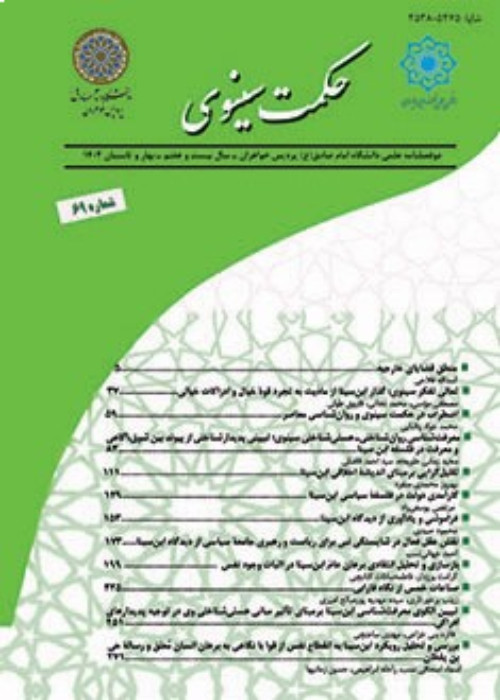The Place of Avicennian Causality: A Historical Survey
Author(s):
Abstract:
Causality in Peripatetic Philosophy from Aristotle to Ibn Sina, allocated a decisive and central role to itself, and not only the existence of external objects but any account of and their explanation without taking into account the principle of causality and causal relationship was impossible in intellectual and philosophical schools in Islamic and western world found a different fate, at times was proved and as a philosophical principle was accepted in the philosophical systems, and then went to the border dispute.Aristotle first made a philosophical analysis of causality in the form of four causes and Ibn Sina explained this theory on the basis of the distinction between existence and nature in Islamic philosophy. Whereas Muslim philosophers and western rationalist philosophers did not oppose this principle, in principle, Muslim and Christian theologians and some Muslim philosophers as well as empiricist and positivist philosophers looked at the principle of causality and its correlatives in a different way, sometimes they rejected this principle, sometimes while accepted it did not accept its consequences or reduced it to something like a mathematical rule, which has no actuality in the external world.
Language:
Persian
Published:
Avicennian Philosophy, Volume:16 Issue: 48, 2013
Page:
55
magiran.com/p1103629
دانلود و مطالعه متن این مقاله با یکی از روشهای زیر امکان پذیر است:
اشتراک شخصی
با عضویت و پرداخت آنلاین حق اشتراک یکساله به مبلغ 1,390,000ريال میتوانید 70 عنوان مطلب دانلود کنید!
اشتراک سازمانی
به کتابخانه دانشگاه یا محل کار خود پیشنهاد کنید تا اشتراک سازمانی این پایگاه را برای دسترسی نامحدود همه کاربران به متن مطالب تهیه نمایند!
توجه!
- حق عضویت دریافتی صرف حمایت از نشریات عضو و نگهداری، تکمیل و توسعه مگیران میشود.
- پرداخت حق اشتراک و دانلود مقالات اجازه بازنشر آن در سایر رسانههای چاپی و دیجیتال را به کاربر نمیدهد.
In order to view content subscription is required
Personal subscription
Subscribe magiran.com for 70 € euros via PayPal and download 70 articles during a year.
Organization subscription
Please contact us to subscribe your university or library for unlimited access!


